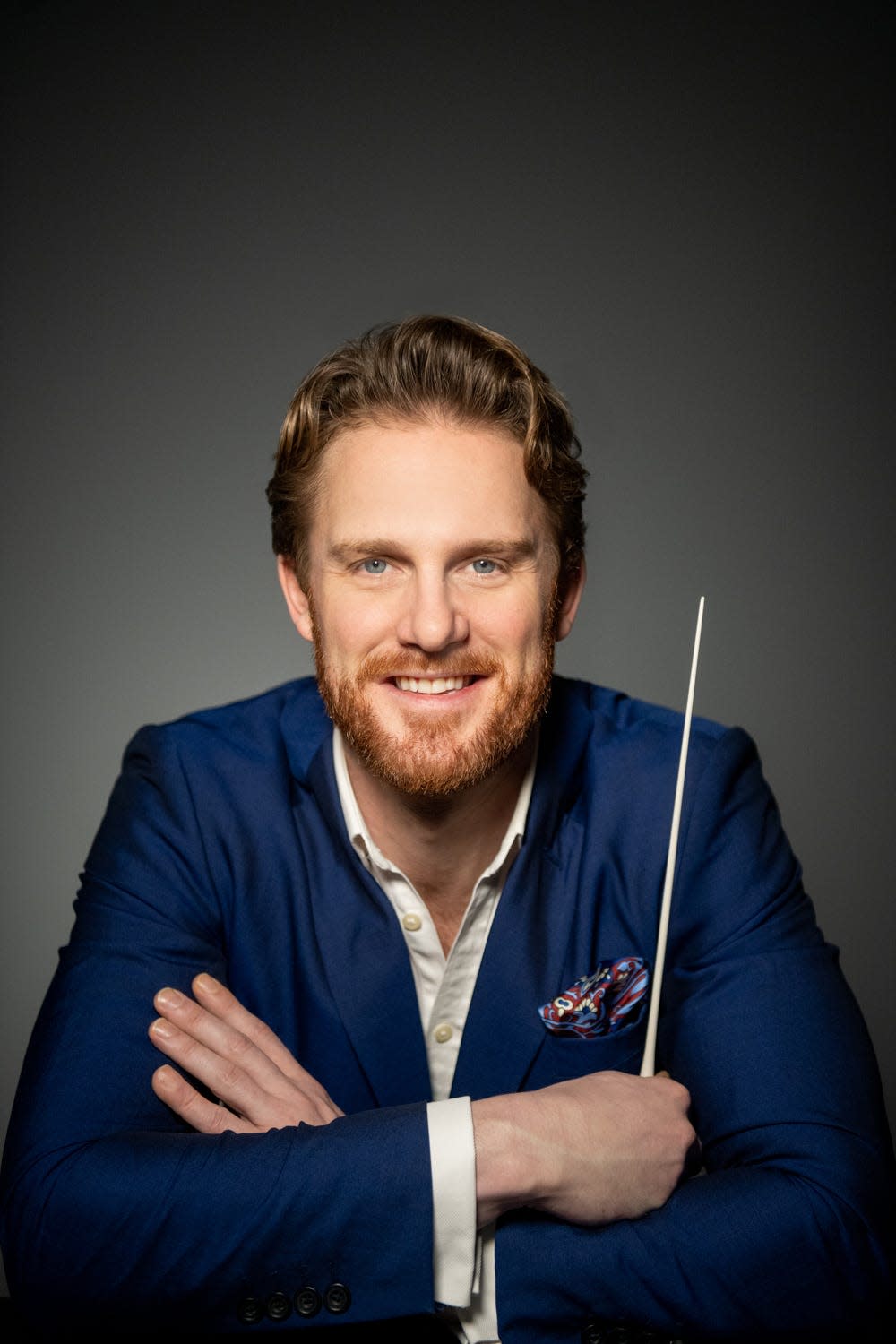From the director: Jacksonville Symphony planning 'fantastique' end to season

This year has flown by with so many performances and great artists that it’s hard to believe we’ve come to the final classical concert of the season. As we approach our 75th season next year, there is much to look forward to, but first, we end this season with one of my favorite symphonies and one of the most exciting pieces to be written within the last decade.
We start with a new work by the great English composer Thomas Adès. We’ve played a few of Adès’ pieces over the past few years, and I’m particularly excited to introduce "The Exterminating Angel Symphony." It has a personal connection for me: I worked on the premiere of the opera on which this symphony is based in 2016 at the Salzburg Festival.
The opera is based on the 1962 film "The Exterminating Angel" directed by Luis Bu?uel. It’s a surrealist masterpiece. We’re at an upper-class dinner party after a night at the opera. Silver and crystal glisten in the candlelight. Conversation sparkles, and the food is delicious. But at the end of the evening, for some reason, no one can leave the house. This continues for days, weeks, with all the guests stuck in the dining room.
Gradually, the norms of civilization disintegrate, and we see the brutal side of human survival. One guest dies, a couple perishes in a wardrobe and guests hack through the walls to find a water pipe. Hysteria prevails until someone suggests that everybody sits exactly as they were when they got stuck. The guests reenact the evening, miraculously discovering they can leave. Reunited with their families outside the house, they set off for church to say a Requiem Mass on Thanksgiving. But at the end of the mass, no one can leave the church. The opera ends.
Adès relishes the surrealism of the film, creating a musical atmosphere in which we are never sure where we are or exactly what we’re hearing. Some of the most interesting music takes place in the orchestra, leading Adès to draw an orchestra-only piece from the opera in 2020, which he entitles a "Symphony."
The first movement, “Entrances,” plays the music over which the guests arrive at the dinner party. The second is a ferocious march representing the growing panic of the trapped guests as time passes. The third is a “Berceuse,” or lullaby, very beautiful and poignant, as a soon-to-be-married couple sing to each other before their imminent fate. And the finale, “Waltzes,” takes music from throughout the opera.
Waltzes have been constantly present as a symbol of decadence, much as in Maurice Ravel’s masterpiece "La valse," which we performed a few weeks ago. The dance always contains something sinister, and Adès seems to be trying to out-compose Ravel in his depiction of wealthy excess and calamity.
After intermission, we turn to one of the greatest symphonies of the 19th century: Hector Berlioz’s magnificent "Symphonie Fantastique," completed in 1830. Berlioz believed in programmatic music, that is, pieces that tell a specific story. The symphony is subtitled “Episode in the life of an artist … in five sections.” Based on Berlioz’s own life, the story concerns an artist who has poisoned himself with opium due to his intense and unrequited love for a beautiful woman. In real life, this was Harriet Smithson, a Shakespearean actress, who later became Berlioz’s wife.
The symphony takes us on a journey alongside Berlioz. The first movement paints a picture of a sensitive artist, lost in his thoughts. In the second, he’s traveled to the countryside where he hears a shepherd’s pipe, before rumblings of thunder. In the third movement, he imagines himself at a ball, constantly catching glimpses of his beloved, who remains tantalizingly out of reach. The fourth is a nightmare in which Berlioz sees himself sentenced to death and marched to the scaffold, where his beloved overlooks his execution. And even more sinister is the finale, at which Berlioz arrives amid a wild Witches’ Sabbath, full of unearthly shrieks and hallucinations.
In 1830, Ludwig van Beethoven had barely been deceased for three years. His symphonies were held up as the ideal. The artistic leap that Berlioz took in imagining the "Symphonie Fantastique" is enormous. The sheer originality of the concept is staggering, as is the power, terror and beauty of the music. Throughout the symphony, Berlioz’s passion and vigor make the music fizz with life and excitement, resulting in a thrilling, orchestral journey. On June 7 and 8, we hope you’ll join us in Jacoby Symphony Hall as we go on a wild adventure.
The Jacksonville Symphony performs "Symphonie Fantastique" at Jacoby Symphony Hall at 7 p.m. Friday, June 7, and Saturday, June 8. Tickets are $31-$84.
Courtney Lewis is music director for the Jacksonville Symphony.
This article originally appeared on Florida Times-Union: Jacksonville Symphony plans 'fantastique' finish to season
